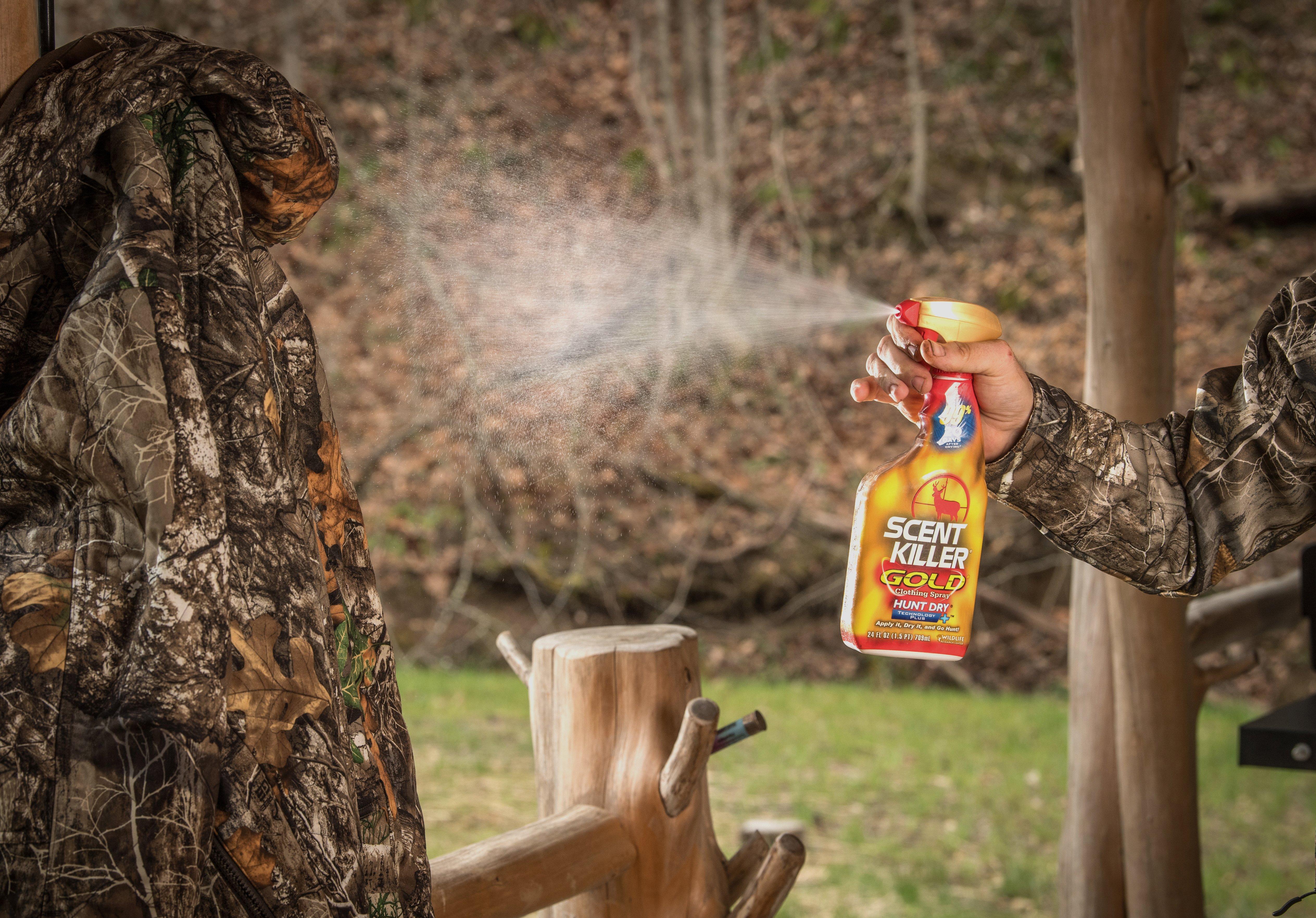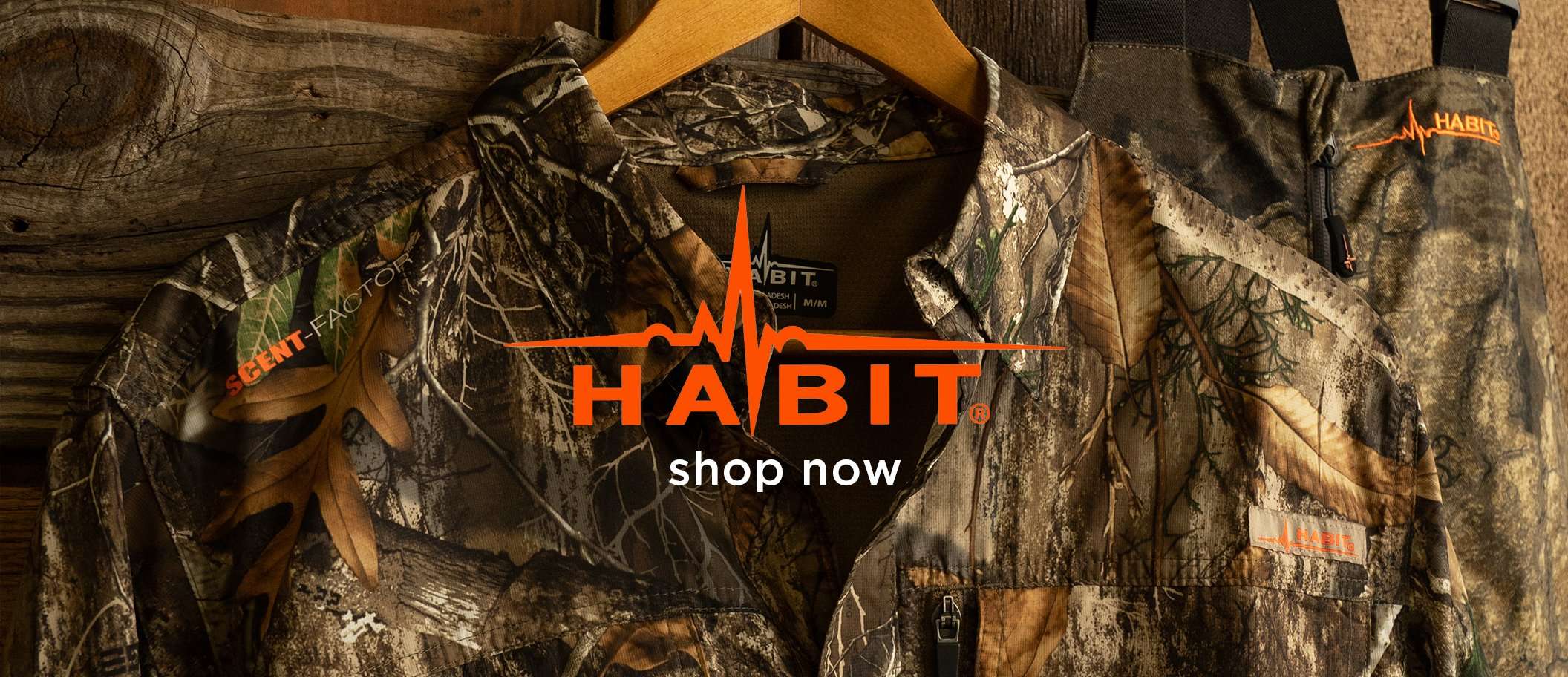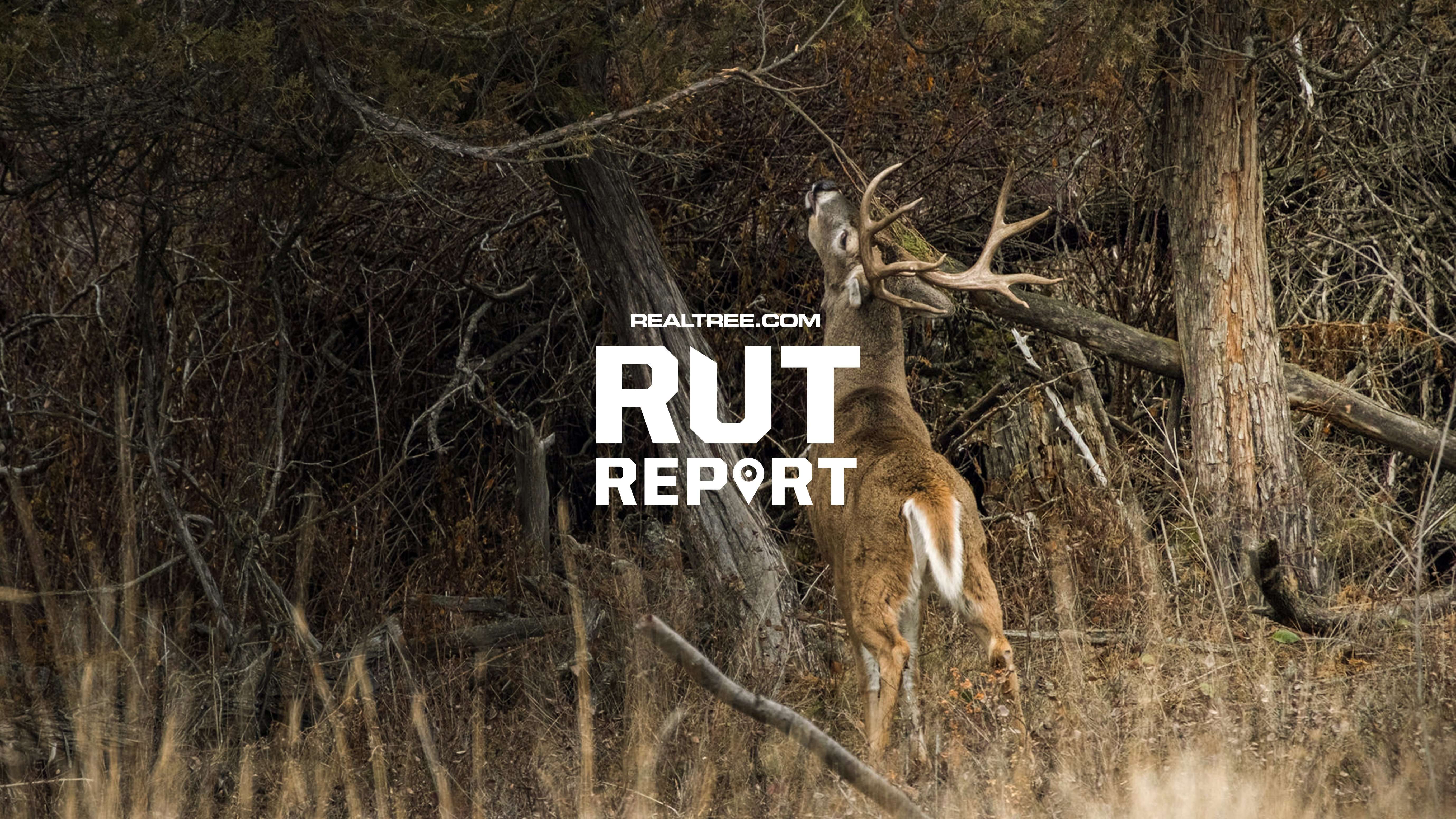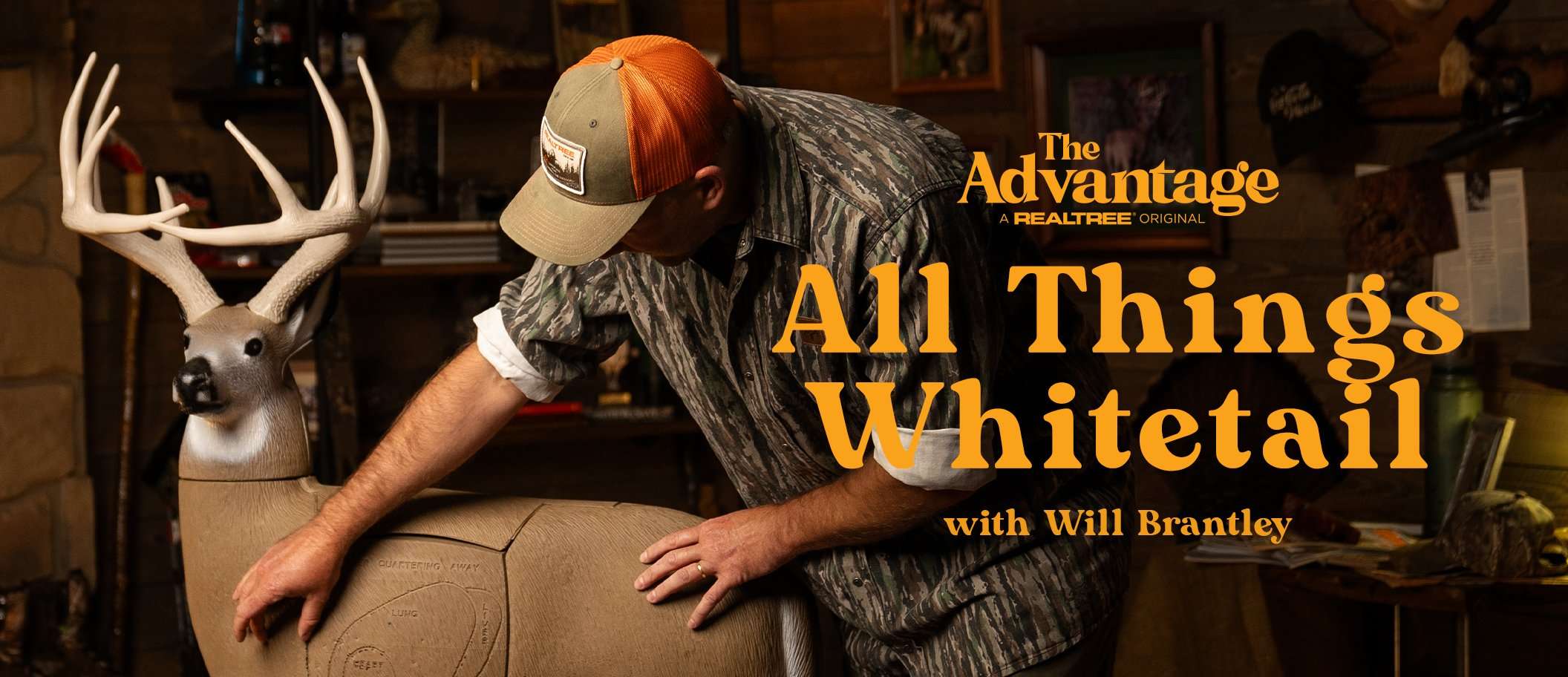Skeptics claim otherwise, but science has proven that odor-controlling products can actually help you fool a whitetail’s nose

Research confirms the value of some scent-control products, but you still must use them correctly to maximize their benefits. Photo courtesy of Wildlife Research Center.
A while ago, a guy named John saw me on TV spraying my boots and camo with a popular odor-killer and shot me an email: “Mike, stop using that spray stuff. It doesn’t work, and using it makes you look foolish!”
Generally, I brush off wisecracks like that, but this one got under my skin, especially the “makes you look foolish” part. I did some research on human odor and how to control it, and lo and behold, I ran across a study confirming that odor-killing sprays marketed to deer hunters actually work.
I have a hunch there are many other spray skeptics like John out there. If you’re one of them, read on.
Check Out Our Latest Camo Pattern: Realtree APX
WHAT IS HUMAN SCENT?
According to researchers at Mississippi State University, a person’s scent is a complex mixture of hundreds of compounds given off by bacteria that live in our bodies and on our skin. Scent compounds also come from the body as it breaks down molecules to make energy. The odors are emitted through the skin and breath. These substances, called volatile organic compounds, evaporate into the air and stink.
TWO STUDIES CONVERGE
In a lab at MSU, scholars from the Department of Chemistry were working on potential ways to collect and analyze VOCs from human body and breath odor. Their goal was to use VOC detection to diagnose and monitor human diseases such as diabetes. Interestingly, their research led to a collaboration with the MSU wildlife ecology department, which at the time was studying odor-reducing products for hunters.
“Deer hunters are always looking for ways to beat the deer, so to speak, in terms of scent control,” said Bronson Strickland, a professor at MSU’s Deer Lab, one of the top whitetail research facilities in the country. “A deer’s sense of smell, like a dog’s, can be anywhere from 500 to 1,000 times more acute than a human’s.”
SCENT SPRAY SCIENCE
The next step was figuring out which specific ingredients of body odor might spook deer. Each of us emits a unique scent, and that scent varies depending on what and when we eat, drink, exercise and sweat. To get a cross-section of scents, the researchers collected body odor samples from 65 people who for hours wore an untreated T-shirt or a T-shirt treated with a spray designed to eliminate or mask a hunter’s body odor. The researchers tested four scent-eliminating sprays out of dozens on the market, though they did not identify specific brands.
Based on analysis of the hundreds of VOCs emitted by the 65 people, researchers found that the sprays worked by greatly reducing the levels of 29 critical compounds, by killing bacteria, binding to the chemicals or converting them into less volatile compounds.
SPRAY RIGHT
Although science confirms their value, you must use an odor-reducing spray correctly for max effectiveness. Here’s the method I’ve used for years.
I hang my base layers, camouflage, safety harness and daypack (anything fabric that collects odor compounds) on a fence outside and spray everything thoroughly inside and out with my favorite brand, Scent Killer Gold. I let everything air-dry for hours. After Scent Killer dries on your gear, it effectively reduces human odor that comes in contact with it for about 20 days. On each hunt, I carry a small bottle of spray, and after climbing into a stand and emitting more energy-produced odor compounds, I spritz my camo and hat with a light coating of fresh spray. You can’t be too careful when trying to fool a big deer’s nose.
Don’t Miss: Can Fitness Make You a Better Whitetail Hunter?












